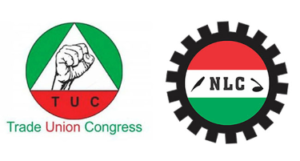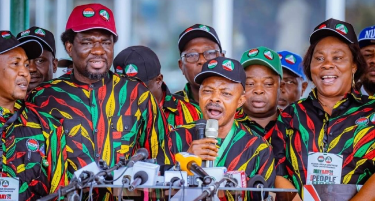The Organised Labour has taken a firm stance, rejecting any proposed minimum wage of ₦62,000 or ₦100,000 as insufficient for Nigerian workers. Instead, they have firmly demanded ₦250,000 as the minimum wage. This position was articulated by Chris Onyeka, Assistant General Secretary of the Nigeria Labour Congress (NLC), during an appearance on Channels Television’s “The Morning Brief” show on Monday. Onyeka emphasized that the union’s demand reflects the harsh economic realities faced by workers.
“Our position is very clear,” Onyeka stated. “We have never considered accepting ₦62,000 or any other wage that is insufficient to sustain Nigerian workers. We will not negotiate a starvation wage. We have never contemplated ₦100,000, let alone ₦62,000. We remain firm on ₦250,000, which we see as a reasonable concession to the government and other social partners in this situation. Our stance is based on the practical realities of the marketplace and the cost of essential goods such as rice, yam, and garri.”
Onyeka also mentioned that the one-week grace period given to the Federal Government, starting from Tuesday, June 4, 2024, is set to expire at midnight on Tuesday, June 11, 2024. Should the government and the National Assembly fail to meet the workers’ demands by then, the NLC and the Trade Union Congress (TUC) will convene to decide on resuming the nationwide industrial action that was previously put on hold.
“The Federal Government and the National Assembly now have the responsibility,” Onyeka explained. “Our demand is for them to consider and act upon. They need to send an Executive Bill to the National Assembly to establish a National Minimum Wage Act that aligns with our demands. If this does not happen by the end of the grace period, we will reconvene to decide our next steps. If the government insists on ₦62,000, we will remove the pause on the nationwide indefinite strike and return to our previous stance.”

The deadlock over the new minimum wage has been ongoing for weeks, culminating in an indefinite strike declared by labour unions on Monday, June 3, 2024. This strike effectively paralyzed businesses across the country, including the shutdown of airports, hospitals, the national grid, banks, and legislative complexes. The unions argue that the current minimum wage of ₦30,000 is inadequate to meet the needs of an average Nigerian worker, especially since many governors have not implemented the existing wage award, which expired in April 2024.
The need for a new minimum wage became pressing as the previous Minimum Wage Act, signed by former President Muhammadu Buhari in 2019, mandates a review every five years. In January 2024, President Bola Tinubu inaugurated a tripartite committee to negotiate a new minimum wage. Initially, Labour proposed ₦615,000, which they later reduced to ₦497,000, and then to ₦494,000. Conversely, the government and the Organised Private Sector initially proposed amounts ranging from ₦48,000 to ₦60,000, all of which Labour rejected, leading to the strike.
Following the strike’s initiation, Secretary to the Government of the Federation (SGF), George Akume, announced that the President was committed to a wage above ₦60,000. This led to the temporary suspension of the strike on Tuesday, June 4, 2024, allowing for resumed negotiations. However, the subsequent talks on Friday, June 7, 2024, did not yield an agreement. Labour further reduced their demand to ₦250,000, while the government slightly increased its offer to ₦62,000.
The ball is now in the President’s court to make a decision and send an executive bill to the National Assembly for the new minimum wage to be enacted into law. As the deadline




